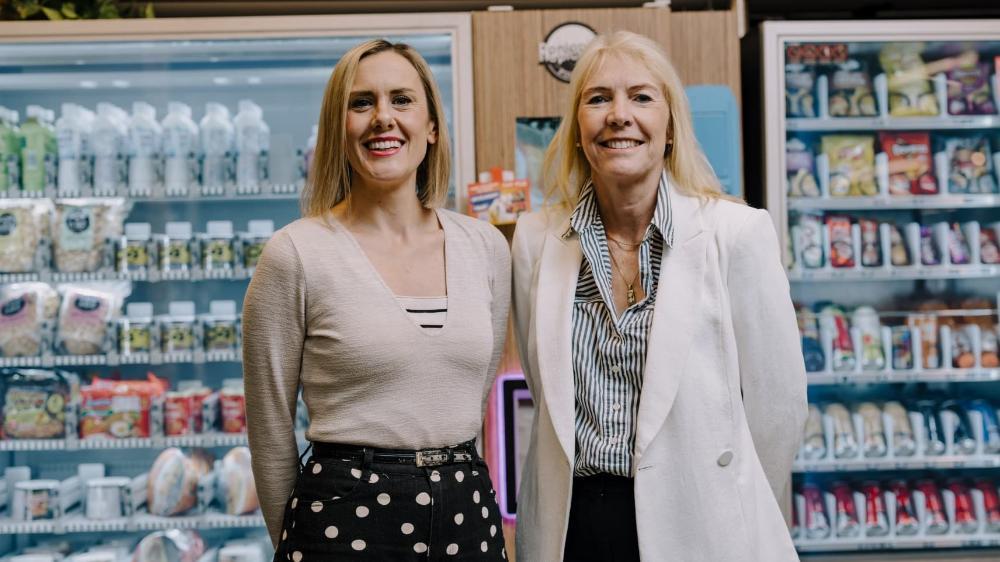July 23, 2024
State of our plates: survey to shed light on all things food in the Illawarra and Shoalhaven
UOW researchers encouraging residents to speak up about their attitudes towards food in the regions
Let’s talk about food. It is a topic dominating conversations and headlines, particularly against the backdrop of a cost-of-living crisis.
Now two researchers from the University of Wollongong (UOW) want to know just how much food dominates conversations, and thoughts, in the home.
Dr Katherine Kent and Professor Karen Charlton, experts in the field of dietetics from the Resilient and Sustainable Food Systems Research Group at UOW, are about to embark on a massive survey of households in the Illawarra and Shoalhaven, to find out what, exactly, people think about the region’s food environment.
Are there healthy takeaway options nearby? Are my children exposed to too many fast food outlets? What does a basket of groceries cost? What if I have dietary requirements? Is food insecurity a concern? How can I purchase fresh fruit and vegetables from independent farmers?
All these questions and much more will be at the heart of the Let’s Talk About Food survey. Approximately 10,000 households in the Illawarra and Shoalhaven have been randomly selected to receive the survey flyer in the mail in the coming days. A social media campaign will also be launched, in conjunction with partner Healthy Cities Illawarra and Food Fairness Illawarra.
Dr Kent said the team, including PhD student Alemayehu Digssie Gebremariam, have undertaken extensive research into the food environment in the Illawarra and Shoalhaven (including Shellharbour and Kiama) and what they have found is deeply concerning. The data showed that when shopping for food, residents of these two regions face six times as many unhealthy food options, such as fast food outlets, compared to healthy ones, such as butchers, and fruit and vegetable shops.
“Mapping the food environment of the Illawarra and Shoalhaven matters, because it helps us to understand if everyone can easily access healthy food.”
“Wollongong and Shellharbour Local Government Areas have the highest numbers of unhealthy food outlets compared to Kiama and Shoalhaven. This imbalance not only makes it challenging for people in our community to choose nutritious foods but could also contribute to higher rates of diet-related health problems in the long term.”
Dr Kent said the researchers are now working to gather more insights from local residents on food access, dietary habits, and their perspectives on the food available in these communities. They believe it is the largest household survey of its kind in the regions, and are hopeful that the lessons and information they will gain will act as a case study for the whole of NSW.

Dr Katherine Kent and Professor Karen Charlton.
In addition to examining the locality of food options, the team’s research has also encompassed virtually every aspect of the food environment, from food insecurity to the cost of groceries and the prevalence of local producers.
“When it comes to access to fresh, healthy food options, where you live matters. What we eat and how we access that is such a fundamental part of our day-to-day wellbeing but we need to hear from residents so we can have the full picture. It’s like having all the pieces of the puzzle. Creating a healthy food environment is essential for communities because it empowers individuals to make nutritious choices and cultivates a culture of health that benefits everyone.”
“Hearing from consumers is also fundamental to making change. We can’t fix our food environment without hearing from as many members of the community as we can about what worries them, how they feel about access to food, if they can afford it, if they prefer to buy directly from farmers. All these elements matter into building a holistic picture of the food environment in the Illawarra and Shoalhaven.”
Dr Kent and Professor Charlton are encouraging residents aged 18 and over to take part in the online survey. Many will have a postcard-sized invitation with a QR code sent directly to their home. All other residents can access the survey by going to uow.info/food, or through Healthy Cities Illawarra website and social media platforms.
“By understanding residents' experiences and perspectives through our survey, we can advocate for policies and initiatives that increase access to affordable, nutritious foods and promote better health outcomes for all,” Dr Kent said.
For more information or to fill out the survey, visit uow.info/food
About the research
The Let’s Talk About Food survey is a partnership between the Resilient and Sustainable Food Systems Research Group at the University of Wollongong, Healthy Cities Illawarra, and Food Fairness Illawarra.
The Resilient and Sustainable Food Systems Research Group focuses on collaborative research for a sustainable food system that is good for both human and planetary health.
:format(jpg)/prod01/channel_3/assets/media-centre/JULY16-14-1.jpg)